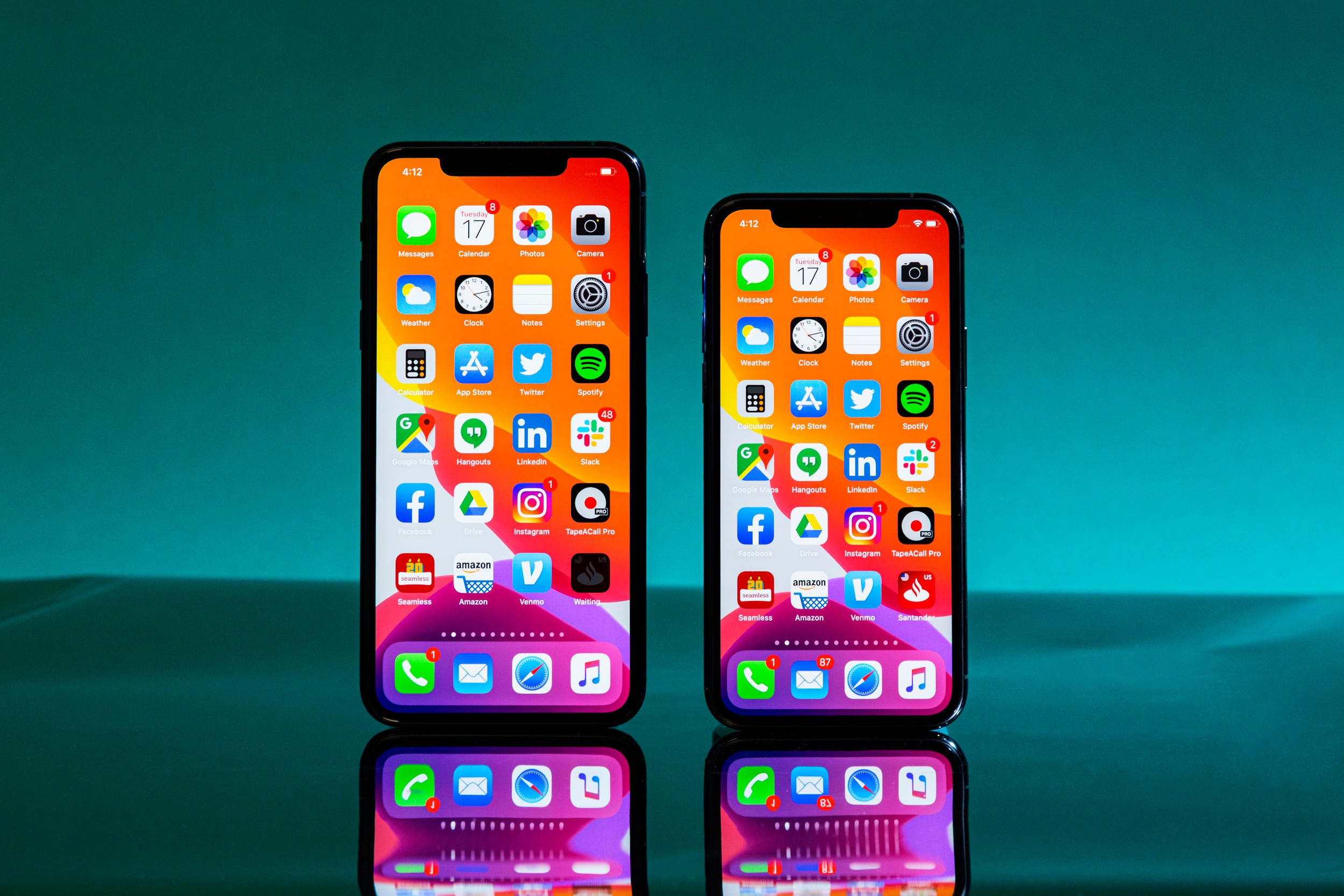- Apple could release a 5G version of the iPhone 12 that costs less than $1,000, says Wedbush Securities analyst Daniel Ives.
- That’s significant because 5G smartphones tend to be more expensive than standard models, with flagship models costing around $1,000.
- Some smartphone makers like OnePlus, TCL, and Samsung are already beginning to release cheaper 5G smartphones.
- But a decision by Apple launch a lower-cost 5G iPhone would mark the first high-profile device to debut with 5G at an affordable price.
- Apple has influenced the industry before when it comes to shifts like eliminating the headphone jack, and it could similarly set a precedent for others to follow with the iPhone 12.
- The launch of a 5G iPhone would also mean that millions of people may potentially have 5G phones by the end of the year, possibly giving carriers more incentive to further build out their networks.
- Visit Business Insider’s homepage for more stories.
When Apple’s iPhone 12 launches later this year, you may not have to spend upwards of $1,000 to buy a model that’s works on 5G networks, according to Wedbush Securities analyst Daniel Ives.
If his predictions turn out to be accurate, the iPhone 12 launch could mark a critical turning point in the industry, potentially ending the trend of tech companies charging a premium on smartphones equipped to handle next-generation wireless networks.
“We believe there are 4 models being launched for iPhone 12 with a mix of 4G/5G with price points that potentially could be lower than $1,000 on some versions despite the additional 5G component,” Ives wrote in a recent research note.
His latest analysis echoes previous rumors and predictions suggesting that Apple plans to continue the approach it took in 2019 by offering its new iPhone in less expensive configurations. YouTuber Jon Prosser, for example, previously reported that the next-generation iPhone will come in two variants that cost less than $1,000: a 5.4-inch version priced at $650 and a 6.1-inch model that costs $750.
It's unclear, however, whether all new iPhones will support 5G. Some reports, such as those from reliable analyst Ming-Chi Kuo of TF International Securities and Prosser, have suggested that all of Apple's new iPhones will support 5G. But Ives said in his report that there will be a "mix of 4G/5G."
The addition of 5G at an affordable price could also provide a much-needed boost to Apple's iPhone business, which has been faltering in recent years as people have been upgrading their phones less frequently. More important for consumers, it could lead to widespread adoption of 5G phones, potentially giving carriers more incentive to further build out their networks across the United States.
Today's 5G smartphones are expensive

A decision from Apple to release a 5G iPhone that's priced below $1,000 would be significant because 5G smartphones tend to be more expensive than 4G models. The Galaxy S20, for example, starts at $1,000, as does the Motorola Edge Plus.
If you do manage to find a 5G smartphone that costs less than $1,000, chances are it's not that much cheaper. LG's V60 ThinQ 5G costs either $900 or $950 depending on whether you buy it from AT&T or Verizon, while the OnePlus 8 Pro begins at $900.
That being said, there are a few exceptions. Smartphone makers like OnePlus, TCL, and Samsung are also starting to release less-expensive 5G phones ahead of Apple's iPhone 12 launch. OnePlus also offers the $700 OnePlus 8 alongside the Pro, which also supports 5G, while Samsung recently announced 5G phones in its budget-oriented Galaxy A line. TCL, meanwhile, has announced the TCL 10 5G which is priced at 399 euros, although the company has not yet confirmed a US launch date.
Samsung brought 5G to more affordable phones with the launch of the Galaxy A51 5G and A71 5G. But its most well-known devices that are meant to compete with the flagship iPhone, its Galaxy S series, are still expensive.
Apple may not be the first tech company to launch a cheaper 5G smartphone. But considering it's the third largest smartphone maker in the world behind Samsung and Huawei, according to research firm Gartner, such a move could have broader implications for the industry. OnePlus and TCL aren't even listed in the top five biggest smartphone vendors and are instead just grouped into Gartner's"others" category.
Apple has a history of setting precedence with the iPhone

Apple may have a reputation for adding features to the iPhone that have long existed on Android. But the company's decisions in the past when it comes to pricing and design have also set examples that the industry has followed.
After Apple launched the $1,000 iPhone X in 2017, marking a significant price jump from the $650 iPhone 7 and $770 iPhone 7 Plus that preceded it - other smartphone makers like Samsung began raising their prices as well.
The iPhone wasn't the first smartphone to ditch the headphone jack - Motorola's Moto Z, which launched before the iPhone 7, also lacked that 3.5mm plug - but it quickly became the standard after the iPhone 7's debut. The headphone jack has become a rarity on today's mobile devices, although some phones from 2019 like Google's now-discontinued Pixel 3a and Samsung's Galaxy S10e each had a headphone jack.
5G is still nascent, but a 5G iPhone could help change that

There's another good reason to remain hesitant about buying a 5G phone other than the price: the network isn't broadly available in the United States. Verizon only offers 5G in 35 cities across the US, and even in those cities it's only available in certain locations.
Similarly with AT&T, 5G is only available in certain counties of the states where it's gone live. T-Mobile boasts that it offers nationwide 5G coverage, and an analytics report from Ookla, reported by CNET, indicates that T-Mobile has more than 20 times as many 5G cities compared to Verizon and AT&T combined. But Verizon and AT&T have pushed back on those claims, and Verizon offered much faster speeds despite having a smaller coverage area according to the report.
In other words, carriers are still in the process of developing and building out their 5G networks, making it difficult to justify paying a premium for a 5G phone.
That's what would make Apple's decision to sell a lower-cost iPhone with 5G compatibility an important one, should it turn out to be true.
That means millions of people may potentially have a 5G phone by the end of the year should all versions of the next iPhone support 5G, which could put pressure on carriers to further refine their networks. Apple no longer discloses first weekend sales numbers for new iPhone sales or quarterly iPhone unit sales. But back in 2015, it reported that it sold 13 million units of the then-new iPhone 6S and iPhone 6S Plus in their first three days on the market.
Data is already starting to show that Apple may be in a position to lead the 5G market once it debuts its new iPhone, even though 5G smartphones have long been available from other companies. A Strategy Analytics report from November said that if Apple's upgrade rates this year match those of 2019 when it launched the iPhone 11 lineup, Apple would surpass Samsung and Huawei.
It would be a necessary advantage for Apple, which has suffered from slowing iPhone sales over the past year. Analysts have been looking to the 5G iPhone as a key upgrade driver for Apple even before the iPhone 11 debuted last year, and the economic ramifications from the pandemic will make this launch all the more important for Apple in the fall.

